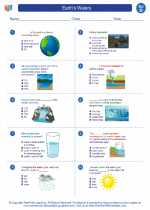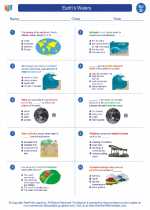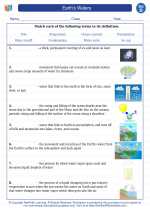Oil: An Overview
Oil is a fossil fuel that is formed from the remains of ancient marine organisms such as algae and plankton. Over millions of years, these organic materials were subjected to heat and pressure, leading to the formation of crude oil beneath the Earth's surface.
Uses of Oil
Oil has a wide range of uses, including:
- Energy production: Oil is a major source of energy for powering vehicles, generating electricity, and heating homes.
- Manufacturing: Oil is used in the production of plastics, synthetic fibers, and other materials.
- Transportation: It serves as a fuel for cars, airplanes, ships, and other modes of transportation.
- Agriculture: It is used in the production of fertilizers and pesticides.
Extraction and Refinement
Oil is extracted from the ground through drilling wells, and then it undergoes a process called refining. During refining, crude oil is heated and separated into different components such as gasoline, diesel, and jet fuel, which are then used for various purposes.
Environmental Impact
The extraction, transportation, and use of oil can have significant environmental impacts, including air and water pollution, habitat destruction, and contribution to climate change through the release of greenhouse gases.
Study Guide
Here are some key points to focus on when studying the topic of oil:
- Describe the formation of oil and its composition.
- Explain the various uses of oil in our daily lives.
- Discuss the process of oil extraction and refinement.
- Explore the environmental impact of oil and potential alternative sources of energy.
Understanding the role of oil in our world and its impact on the environment is crucial for making informed decisions about energy use and conservation.
[Oil] Related Worksheets and Study Guides:
.◂Science Worksheets and Study Guides Fourth Grade. Earth's Waters

 Worksheet/Answer key
Worksheet/Answer key
 Worksheet/Answer key
Worksheet/Answer key
 Worksheet/Answer key
Worksheet/Answer key
 Vocabulary/Answer key
Vocabulary/Answer key
 Vocabulary/Answer key
Vocabulary/Answer key
